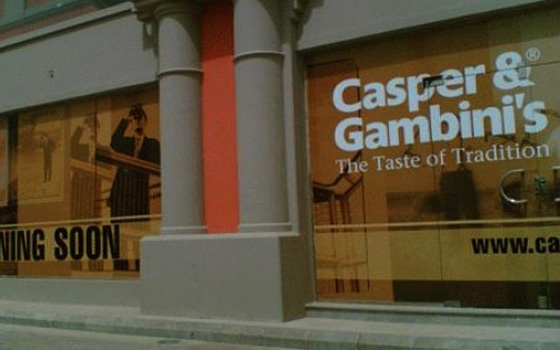Lebanese franchises are gradually expanding throughout MENA as food and beverage companies tap emerging markets, officials and experts said at a Beirut forum.
“Today we have around 300 Lebanese companies which exported franchises to more than 40 countries, and growth prospects continue to be very positive,” Charles Arbid, head of the Lebanese Franchise Association, told The Daily Star.
Arbid said his group, which supports and mentors companies interested in expanding on the regional level, has grown exponentially in membership over the past few years – an indicator that the sector is outperforming the troubled local economy.
“Franchising as a sector is by design made for difficult times. Franchise is about tested and innovative goods and services, which offer a high added-value. … It has all the possibility of remaining solid in spite of any difficulties,” he said.
Lebanese franchise concepts are being exported not only to GCC countries, but to the highly competitive U.S. and European markets.
The view was echoed by the head of AlIktissad Wal Aaamal, Raouf Abou Zaki, who said franchising is an optimal activity for Lebanese companies: “It allows companies to step out of the small Lebanese economy and expand into new markets while keeping costs to a minimum and without the need to allocate the high investments and expenditures traditionally needed to cement position in a foreign market.”
However, Lebanon lacks a legal framework or any specialized body that regulates franchising activities.
Caretaker Economy Minister Nicolas Nahas, who spoke at the opening session of the Beirut International Franchise Forum & Exhibition 2013, was similarly optimistic.
“Lebanon has become the consumption trendsetter in the region,” Nahhas said. “The sector is putting Lebanon on the regional economic map, effectively boosting trade of services and goods with countries where Lebanese firms are strongly present.”
Caretaker Industry Minister Vreij Sabounjian said firms should take the example from strongly competitive sectors including wine-making, clothing and fashion: “Following these examples would open up more markets in the GCC, Europe, Africa, South Asia and even Russia.”
Head of the Beirut Chamber of Commerce Mohammad Choukeir said the liberal Lebanese economy had started to bear fruit, adding that local companies had grown resilient because of foreign competition.
Choukeir added that the next step for Lebanese companies was to undertake initial public offerings.
“This can be highly beneficial for everyone and contribute significantly to the growth and development of companies,” he said.
At a session titled “Franchising: a promoter or innovation killer?” experts said allowing franchise holders a certain degree of innovation can be a great way to boost business.
The famous McDonald’s Big Mac was created by Jim Delligatti, one of the global fast food chain’s earliest franchisees, said Osama Ghanim, CEO of Innovabia.
Marco Almeida, of Spanish retailer Parfois, said the company had been achieving a 34 percent annual growth rate through a mix of tight management of supply networks, franchisees’ stocks and innovative designs for their accessories brand.
The Daily Star
19 April
























































